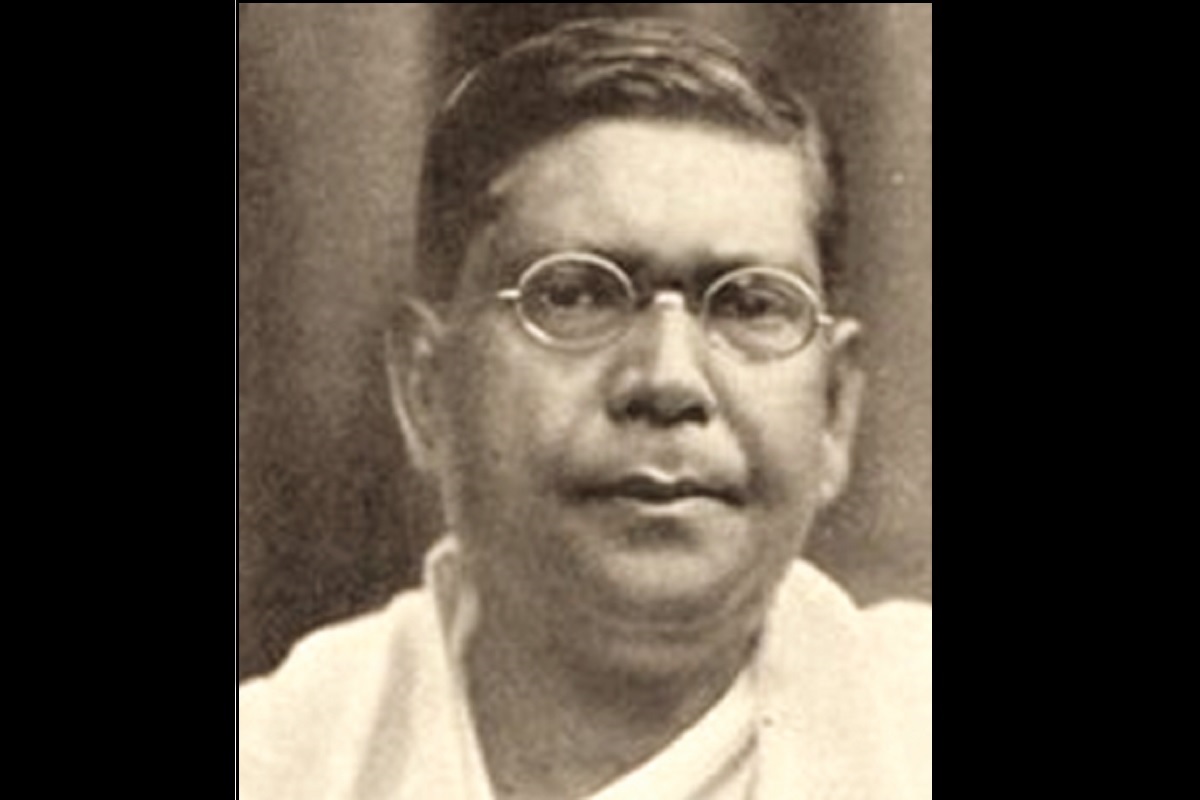Kingly was Deshbandhu Das in every impulse and gesture of his life, royal alike in the splendour of his bounty and the splendour of his renunciation. As the idol of the nation, he served with unsurpassing devotion. ~ Sarojini Naidu on the attributes and accomplishments of Deshbandhu Chittaranjan Das.
After graduating from Presidency College in November 1890, he went to England and joined Middle Temple and within a few months was called to the Bar. During his stay in England he made his mark as an orator and earned fame in his campaign for Dadabhai Naoroji who was competing for a seat to the House of Commons from Central Finsbury. His speeches were published in newspapers and his oratorical skills warmly appreciated. He was then a young man of twenty.
Advertisement
Apart from his profession of a lawyer, Chittaranjan was also a poet at heart. He wrote many books of poems and essays. The most renowned is Sagar Sangeet published in 1913. This was translated into English by none other than Sri Aurobindo Ghosh titled The Song of The Seas.
Chittaranjan was not well known as a lawyer when he was asked to defend Sri Aurobindo in the Alipore Bomb Case before the Magistrate of Alipore. The trial began in May 1908 and continued for a whole year. And he excelled in his performance. Sri Aurobindo was acquitted. CR Das achieved success by virtue of his oratorical skill coupled with legal legerdemain. The words he used in the argument have been embedded in the mind like nuggets of gold not to be erased ever. His eloquence was at its peak when he told the court: ‘Aurobindo stands not only before the Bar of this court but before the Bar of the High Court of history. He is the poet of patriotism, the prophet of nationalism and the lover of humanity.’ No wonder he rose to eminence, started a roaring practice and earned a fabulous amount of money.
After the Jallianwala Bag massacre in April 1919 and other oppressive acts of the British Government, Mahatma Gandhi called for a Non-Cooperation Movement against the Raj. The programme of Non-Cooperation or passive resistance called for renunciation of titles and resignation from government jobs and was marked by picketing, boycott of British goods and use of locally manufactured cloth.
Chittaranjan had opposed the movement earlier at a special Congress meeting in Calcutta in September 1920; but when he met Mahatma Gandhi his doubts were dispelled and he became an active member of the movement since December 1920 and declared it at the Nagpur session of the Congress. He was so overwhelmed by Mahatma Gandhi and his thoughts on Non-Cooperation that he left his practice which made him affluent. Indeed, he was earning around Rs 50,000 a month at that point in time. He even initiated the boycott of foreign goods and his whole family started spinning and selling khadi in order to earn their living, now that he did not have any other source of income. Some critics have stated that Das joined the movement tactically. This perception is unfortunate and a travesty of truth. The sacrifice he made cannot be a symptom of tactics but is emblematic of sincerity of purpose and dedication for the act of serving the Motherland.
But unfortunately the movement was abruptly called off by Gandhi after he heard of the violence in the police station at Chauri Chaura. This was greeted with consternation by a large section of the Congress, pre-eminently Chittaranjan Das, Motilal Nehru and Lala Lajpat Rai who were then all in jail.
An active section of Congressmen, led by Chittaranjan Das, proposed that the party should continue noncooperation by entering the legislative assemblies and blocking Government moves. But the nochanger group supported by Gandhi won the day at the annual session of the Congress held in Gaya in 1922. Das, who was president of the Congress at this time ,quit in protest. Subsequently he started the “Swaraj Party” (within the Congress fold) in league with Motilal Nehru and other members in favour of noncooperation.
In December, 1923 Chittaranjan presided over the All India Trade Union Congress which was held in Lahore. This was suggestive of his strong influence within the labour front. Early in the following year, Das accomplished something new. He wanted to have his own members in the Calcutta Municipal Corporation. The Corporation was to have a fresh constitution after the extension of its jurisdiction by incorporating a number of adjacent municipalities and a new Act was passed in 1923. When the first election of this new set-up was held in January 1924, Chittaranjan’s party was the clear winner and he was elected its first Mayor. Subhas Chandra Bose was appointed as the Chief Executive Officer of the corporation to assist Das in running the municipal administration. This time Das took a revolutionary step. The Muslims, numerically the largest group, had been disempowered for many decades and had begun to be conscious of their status. The feeling of deprivation amongst the Muslims would often boil over and aggravate tension between Hindus and Muslims. In a radical move he conceived of an accord with Muslims that allowed for greater representation for them in the legislative assembly and local bodies. The Bengal Pact of 1923, as this accord was named, generated strong resistance from amongst the Hindus.
But he stuck to his guns and with Bose as his able assistant went around recruiting. Muslims to fill 80 per cent of the jobs for which recruitment had begun in the corporation. The Muslims hailed Das as the pact was cleared by the BPCC at its meeting on 18 December 1923. Despite the complexities of Hindu-Muslim relationship, this bold act of Das had intended to have a salutary and positive effect on the psyche of the Muslims. Aside from political sagacity, this was a master-stroke of wisdom and pragmatism.
(To be concluded)
(The writer is a retired IAS officer)











